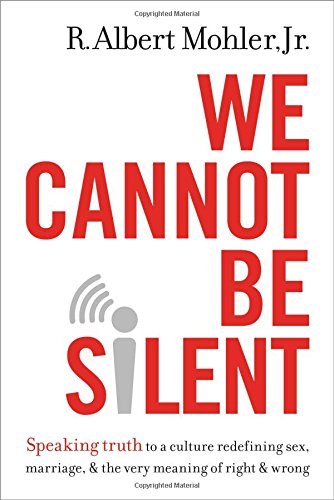A Brief Book Summary from Books At a Glance
About the Author
R. Albert Mohler Jr. is president of the Southern Baptist Theological Seminary and the Joseph Emerson Brown Professor of Christian Theology. Dr. Mohler can be heard on The Briefing a daily podcast which analyzes news and events from a Christian Worldview. He also writes a popular commentary on moral, cultural, and theological issues at albertmohler.com. He and his family live in Louisville, Kentucky.
Brief Overview
Twenty years ago, not one nation on earth had legal same-sex marriage. Now, access to same-sex marriage is increasingly seen as a basic human right. In a matter of less than a generation, western cultures have experienced a moral revolution.
Dr. R. Albert Mohler examines how this transformation occurred, revealing the underlying cultural shifts behind this revolution: the acceptance of divorce culture, liberation of sex from reproduction, the prevalence of heterosexual cohabitation, the normalization of homosexuality, and the rise of the transgender movement. He then offers a deep look at how the Bible and Christian moral tradition provide a comprehensive understanding upon which Christians can build their personal lives, their marriages, church ministry, and cultural engagement.
Dr. Mohler helps Christians in their understanding of the underlying issues of this significant cultural shift and how to face the challenge of believing faithfully, living faithfully, and engaging the culture faithfully in light of this massive change.
Table of Contents
Preface
- In the Wake of a Revolution
- It Didn’t Start with Same-Sex Marriage
- From Vice to Virtue: How Did the Homosexual Movement Happen?
- The Impossible Possibility of Same-Sex Marriage
- The Transgender Revolution
- The End of Marriage
- What Does the Bible Really have to Say about Sex?
- Religious Liberty and the Right to be Christian
- The Compassion of Truth: The Church and the Challenge of the Sexual Revolution
- The Hard Questions
A Word to the Reader
Summary
Chapter One:
In the Wake of a Revolution
Mohler begins by alerting his readers that the cultural acceptance and normalization of same-sex relations is extraordinarily different from any moral revolution the church has faced before. Unlike other moral shifts, churches that continue to hold to orthodox teaching on these matters are viewed not simply as “backward” but positively “immoral.” The suddenness of this moral revolution is also unprecedented in history.
Mohler briefly traces the ideological roots of this revolution in the Enlightenment and the slow but sure process of secularization that resulted. Following Charles Taylor’s narrative in A Secular Age, modern people are no less spiritual than they have always been but they object to an interventionary, personal, authoritarian deity who has the right to delimit individual freedoms.
Recent developments have demonstrated that what we are experiencing is a moral revolution, not a moral shift. A moral shift can be accommodated within the existing moral consensus of society, but a revolution fractures that moral consensus. The driving forces behind the Sexual Revolution have not simply been ideological, but also social and technological. Mohler notes the rise of urbanization and mobilization which encourages sexual anonymity. Technological advances in contraception have played an enormous role in legitimizing sexual promiscuity. Another factor was the rise of “sex professionalism,” the creation of an expert class or caste that dictates sexual mores based on purported scientific research. This veneer of scientific objectivity has been used to justify national educational policies.
The end game of the Sexual Revolution, Mohler notes, is the “death of morality,” in essence, a time when sexual activity of any kind will be as neutral an act as eating, sleeping, or jogging. In the next chapter, Mohler will continue to probe the underlying causes that have made the Sexual Revolution possible.
[To continue reading this summary, please see below....]The remainder of this article is premium content. Become a member to continue reading.
Already have an account? Sign In
